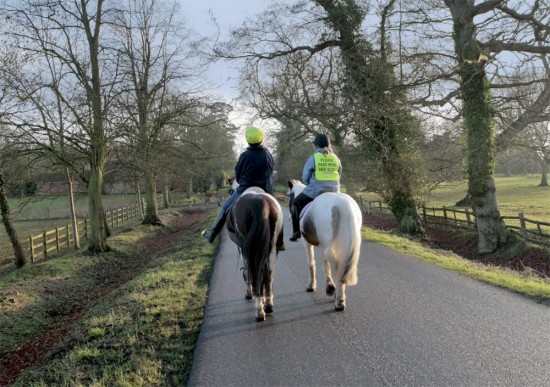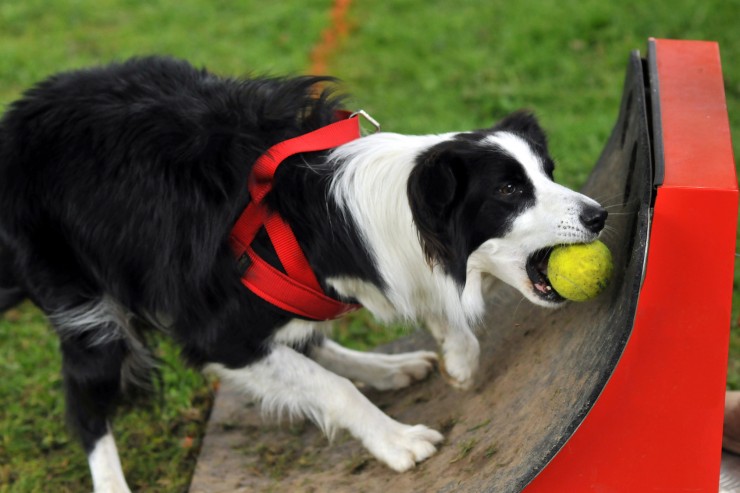
West Highland White Terriers ( Westies) began their history as the undesirable white offspring of the dark-colored Cairn Terrier. With the dog's popularity today, it is hard to believe that the early Westies were usually drowned or shot.
One breeder, though, Colonel Edward Donald Malcolm of Poltalloch, is credited with recognizing the potential of the white coat. The legend is that it made the dog more visible as it ran through brush, and prevented it from being mistaken for prey during foxhunts. He bred them for their white coats, and for many years they were known as Poltalloch Terriers.
The Westies, as they commonly called today, the Cairn, Scottish, Skye, and Dandie Dinmont, Westhighland Terriers are closely related breeds that arose in the rugged terrain of Scotland. They were bred to chase down small prey such as otters, foxes, badgers, and vermin.
The Terrier's features and temperament both were honed until it became a feisty little dog that would determinedly run its quarry to ground.
It has a small, compact body, with short legs, which allowed it to run and squirm through underbrush where its usual prey dwelled. The Westie's double coat has coarse outer hairs to shed dirt and debris, and a thick, soft undercoat.
Like many hunting dogs, they are considered intelligent. They also are prone to pursue any creature that runs from it. Barking announced to the hunter that it was on the chase. Westie dogs were trained and bred to become more aggressive the harder the prey tried to escape.
The origin of the word 'terrier' is in the Latin word 'terra' - earth. It was given to them, and all terrier breeds, because once their prey is run to ground, they will dig it out. Westies today still possess the tendency to be diggers.
The modern white westhighland terrier dog is a hardy, tenacious breed that is also loyal and friendly. They still retain the traits of their ancestors: a love of the chase, a moderate tendency to bark, a habit of digging, and they are prone to become a bit aggressive during very rough play.
They are a little obstinate, and need firm, consistent discipline. However, they are also easy to care for, and natural guard dogs. Those taking a Westie as a pet will find themselves with a loyal, loving companion for the life of the dog.
Terrier puppies, like all very young dogs, should be trained in short sessions of five minutes or less. Make the training session play for both you and your terrier. Generously reward your dog with praise. They are also known to react well to food training.
Your Westie will become confused if you lash out at its misbehavior, particularly if you continue to be angry after the behavior has stopped. Your little terrier wants to please you, and by consistently rewarding the behavior you wish to promote, you will encourage it to become part of the dog's personality.
Like the Scottish Terrier, and other terrier breeds, Westies are barkers. Barking is a dog's natural way to communicate a variety of feelings from happiness, to anxiety, to boredom. The terrier breeds, though, are quicker to bark than other dogs.
The most natural reaction by dog owners is to yell at your terrier to stop barking. This is exactly the WRONG thing to do. Your dog hears the loud voice as a sort of human bark, and it only reinforces the behavior. The key is to remain calm, verbally and physically, and diffuse the terrier's excited emotional state. Say 'no bark' in a calm but firm tone. Never forget to reward the dog when the barking stops.
West Highland Terriers are clever, active dogs, and they will sometimes bark out of boredom. Be sure to provide your dog with walks and appropriate play to stimulate their minds and bodies. You can divert their attention with a chew toy that can be stuffed with a food treat.
It's not that hard to see then that the West Highland White Terrier definitely qualifies as one of man's best friends.
I do hope that you have found the article of use to you.
(Disclaimer: Any information contained in this site relating to various medical, health and fitness conditions of Westies or other animals and their treatments is for informational purposes only and is not meant to be a substitute for the advice provided by your own veterinarian. You should not use the information contained herein for diagnosing the health of any animal. You should always consult and check with your own vet or veterinarian.)
 Five Important Life Lessons That Children Learn From Pets
Five Important Li
Five Important Life Lessons That Children Learn From Pets
Five Important Li
 Riding Out In The Winter - Tips To Staying Safe
Riding Out In The
Riding Out In The Winter - Tips To Staying Safe
Riding Out In The
 Teaching Your Dog The Basics Of Flyball
Teaching Your Dog
Teaching Your Dog The Basics Of Flyball
Teaching Your Dog
 Hereditary Health And Genetic Diversity Within The Chihuahua Dog Breed
Hereditary Health
Hereditary Health And Genetic Diversity Within The Chihuahua Dog Breed
Hereditary Health
 Cavapoo Genetic Diversity And Hereditary Health
Cavapoo Genetic D
Cavapoo Genetic Diversity And Hereditary Health
Cavapoo Genetic D
Copyright © 2005-2016 Pet Information All Rights Reserved
Contact us: www162date@outlook.com